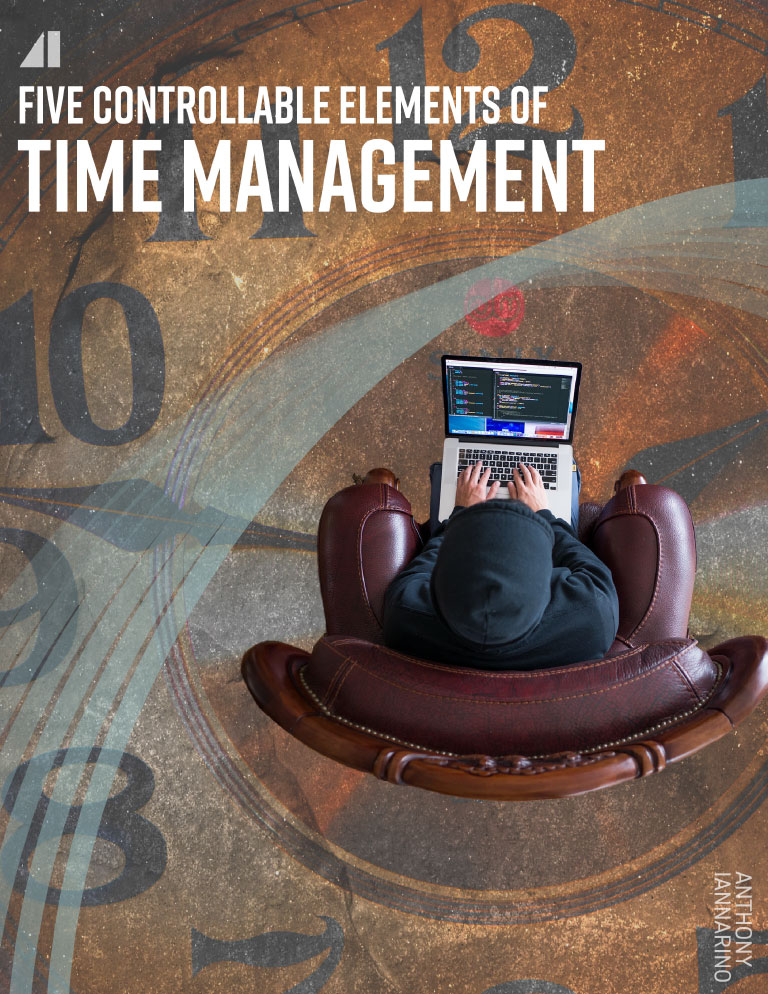There is a decision that a good many salespeople make that harms their results, causes them to fail to reach their goals, reduces their quality of life, and weakens the value they create for their clients and their company: to step down from the role of the consultative salesperson to account manager or customer service.
Those who willingly take on an operational and transactional role lie to themselves, choosing to believe that circumstances beyond their control forced their hand. They sell themselves on the idea that they are not to blame, so they can continue to tell themselves that they are both a good worker and a hard worker, neither of which is true.
By adopting this decision, they disempower themselves by pretending that they lack agency, the ability to make decisions about their work. The unparalleled autonomy of the sales role requires discipline and priorities. But instead of prioritizing the sales outcomes they need to achieve, these ex-salespeople choose to focus on the smaller, more menial tasks— ones that create little value for their clients and rarely advance their own goals.
The Evidence of Self-Demotion
Are you one of these ex-salespeople? Let’s consider the evidence.
Exhibit A: You open your inbox first thing in the morning, just waiting for clients to inform you that they need something from you. You have already conceded that your priority is to do these small, transactional tasks instead of working on bigger initiatives, pursuing more challenging conversations, or challenging (and impressing) your clients with a new initiative that would improve their results.
Exhibit B: Your client asks for a report or a copy of an invoice or some other such thing. There is nothing in the request that suggests their need is urgent, but you treat as if it is of real value. Pretending that you are taking care of your client, you immediately go to work to get them what they need, knowing that it’s important to them.
Exhibit C: You have burned in a reactive mode of work, waiting for more incoming busywork instead of doing the more challenging and more important work that leads to the results you need. The habit of giving up your agency is difficult to break once you have burned it in.

Exhibit D: You complain about the small tasks that you allow to dominate your time, blaming others for forcing them on you, all while telling yourself that you would do the more important work if only someone would take these tasks from you.
Exhibit E: You don’t do anything to help yourself by asking other people—whose responsibilities include these very tasks—to do them for you. Instead, you tell yourself that it is faster to do it yourself or that you can’t trust someone else to do it for you.
Exhibit F: You have trained your clients to call you if they need anything at all. The decision to be Johnny- or Jenny-on-the-spot has you running errands for your clients instead of creating the level of value that makes you a trusted advisor. You don’t command that role when you do transactional work instead of strategic work.
If these exhibits hit close to home, take an honest look at the complexity of your work and the value of the outcomes you achieve. Chances are that any teenager with an internet connection could handle most of the busywork, so why are you doing it instead?
Taking Back Your Power
There is no reason to prioritize small things over the bigger, more important outcomes you need. Prioritizing low-value work, even though it’s important, is a recipe for failure. Being always available means that you don’t have your priorities right, and it inevitably snatches defeat from the jaws of victory. The way you take back your power and improve your results is to prioritize your work, something that is wholly within your control.

Selling is made up of two different outcomes: 1) Opportunity Creation and 2) Opportunity Capture. As much as it would benefit your sales to do only activities that create these outcomes, there are other things you have to do. For example, if your client is having trouble getting the results you promised them, you are going to have to help them. Making sure they receive the value you sold them is critical, and it may need your attention right now.
However, there is a difference between urgent tasks and important ones. Solution failure will often command your attention immediately, while paperwork can almost certainly wait until the end of the day. Here are a few tools for handling both types of tasks effectively.
First Things Always First: Doing what is most important first, every day, protects your most important outcomes and results. The decision to always put first things first is available to you, regardless of what’s in your inbox. Setting aside the first ninety minutes of the day protects you from making guilt-driven decisions that will ruin your results.
Aggregate Transactional Work: Let’s assume that some of your work is transactional, doesn’t connect to your goals, and is of relatively low value to all stakeholders involved. It’s perfectly fine to let the low-value work pile up. Not only does that effectively communicate your priorities, but it lets you handle small tasks more efficiently after you have done your higher-value work.
Pretend You Are in a Meeting: Your clients don’t know where you are when they email you or call you. Neither does anyone else. You might be in a meeting with a client. You might be in a meeting with your manager. You might be at the dentist’s office, maintaining that perfect smile of yours. You might be cheering at your kid’s baseball game or school play. In none of these circumstances would you take a phone call from a client, and all of them will accept the fact that you waited an hour or two to return their call or email.
If you fear losing your client because you are not responsive enough to the small, transactional work you do for them, you’re afraid of the wrong thing. Worry instead about losing them because you don’t create real value for them— while your competitor is giving them the real results they need from a salesperson.

Get the Free eBook!
Five Controllable Elements of Time Management
Time is out of your control. Nothing you do can slow it down, speed it up, or make it stop. You can, however, take advantage of it. By managing yourself and your calendar, you can start getting more out of your day and take bigger strides towards achieving your sales goals.
Download Now







.jpg?width=768&height=994&name=salescall-planner-ebook-v3-1-cover%20(1).jpg)


